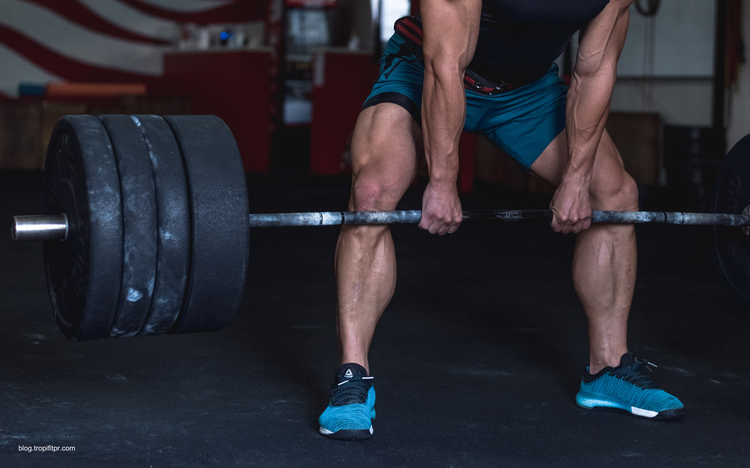Probiotics & Prebiotics

This modern life delivers a “gut punch” of health issues…
High stress levels, too little sleep, eating ultra-processed and high-sugar foods, can all damage our gut microbiome.
The result: complications with our health, from unintentional weight changes, fatigue, skin irritation, autoimmune conditions, and food intolerances.
Let’s change that.
Learn the real benefits of probiotics and prebiotics, why they are so good for your body, and what food you should eat to keep your gut microbiota healthy.
What are Probiotics & Prebiotics?
Probiotics are “live microorganisms, which when administered in adequate amounts, confer a health benefit on the host.” Put simply: Probiotics are good bacteria (and sometimes yeasts) that offer health benefits.
So how do probiotics work?
The main job of probiotics, or good bacteria, is to maintain a healthy balance in your body. Think about maintaining your body in neutral. When you are sick, bad bacteria invades your body and increases in number. This makes you feel out of balance or sick. Now the good bacteria work hard to fight off the bad bacteria to bring back the balance within your body and make you feel better again – Well done probiotics!
Prebiotics are special plant fibers that help the healthy bacteria grow in your gut. This makes your digestive system work better. You can say that prebiotics are the food source for probiotics.
Prebiotics are found in carbohydrates that your body can’t digest. So they go to your lower digestive tract, where they then act like food to help the healthy bacteria grow.
Bottom line: Without prebiotics there’s no food for the probiotics.
That means the probiotics can’t do their job effectively, which leads to problems in your gut microbiota.

The Benefits
Probiotics and prebiotics can provide your body with powerful benefits…
The probiotics may improve digestive health, mental health like reducing depression for example, gastrointestinal health and heart health. Plus, evidence suggests they may even give you healthier-looking skin.
The prebiotics have many links to the benefits of probiotics. They may support a healthy gut, offer better digestive heath, and help to lower antibiotic-related health problems. They may also improve your body’s absorption of calcium and can help process foods faster, so they spend less time in your digestive system, which help avoid constipation.
Foods To Keep Your Gut Microbiota Healthy
Maintaining a healthy gut can sometimes be difficult. But there are many healthy probiotic and prebiotic foods that you can eat, to help your gut.
Prebiotic: Eat lots of vegetables, fruits, beans and legumes
Both fruits, vegetables, beans and legumes are great sources of nutrients for a healthy microbiome. They are high in fiber, which your gut loves. Here are some specific foods high in fiber that are great for your gut bacteria, and should be on your shopping list.

Probiotic: Eat fermented foods
Fermented foods have undergone a process in which the sugars they contain are broken down by yeast or bacteria. Fermented foods are packed with probiotics and may therefore improve your gut health.
Here’s 5 fermented foods to add to your shopping list:

Remember: there are many, many more out there.
The Outcome
Your gut bacteria consist of hundreds of species of bacteria which all are extremely important for many aspects of your health. The best way to maintain a healthy gut microbiota is to eat a varied diet with a range of fresh, whole foods like fruits, vegetables, legumes and fermented foods.
Bonus tips...
- Try trading milk for kefir or yogurt in a smoothie!
- Add tempeh to your favourite stir-fry recipes!
- Serve sauerkraut as a side dish or try adding it in a soup!
- Experiment with kimchi. Add it to your rice or make delicious fritters or pancakes out of it!
Sources & Further Reading
- Prebiotics and probiotics: Creating a healthier you. (2018, February 27) https://www.eatright.org/food/vitamins-and-supplements/nutrient-richfoods/prebiotics-and-probioticscreating-a-healthier-you
- Scott, K. (n.d.). Prebiotics https://isappscience.org/prebiotics/
- Rather, I. A., Bajpai, V. K., Kumar, S., Jeongheui, L., Paek, W. K., Park, Y.-H (2016, April 12). Probiotics and atopic dermatitis: An overview. Frontiers in Microbiology, 7, 507 https://www.ncbi.nlm.nih.gov/pmc/articles/PMC4828648/
- The Health Benefits of Probiotics and Prebiotics. G. R. Gibson,R. A. Rastall,R. Fuller, https://onlinelibrary.wiley.com/doi/10.1002/9780470774595.ch3
- Basic Definitions and Concepts: Organization of the Gut Microbiome. Eamonn M M Quigley https://pubmed.ncbi.nlm.nih.gov/28164844/
- US Department of Health and Human Services, National Center for Complementary and Integrative Health. Accessed 3/9/2020. Probiotics: What You Need To Know https://nccih.nih.gov/health/probiotics/introduction.htm#hed1
- American Gastroenterological Association. . Accessed 3/9/2020. Probiotics https://www.gastro.org/practice-guidance/gi-patient-center/topic/probiotics
- Probiotics and Prebiotics in Pediatrics: Dan W. Thomas, Frank R. Greer and Committee on Nutrition; Section on Gastroenterology, Hepatology, and Nutrition. https://pediatrics.aappublications.org/content/126/6/1217.short#sec-4
- Probiotics and prebiotics in dermatology. Katherine L Baquerizo Nole , Elizabeth Yim, Jonette E Ker https://pubmed.ncbi.nlm.nih.gov/24906613/
- Resistant Starch Alters the Microbiota-Gut Brain Axis: Implications for Dietary Modulation of Behavior. Mark Lyte, Ashley Chapel, Joshua M Lyte , Yongfeng Ai, Alexandra Proctor, Jay-Lin Jane, Gregory J Phillips https://pubmed.ncbi.nlm.nih.gov/26745269/
- Formation of B-vitamins by bacteria during the soaking process of soybeans for tempe fermentation. J Denter, B Bisping https://pubmed.ncbi.nlm.nih.gov/8060790/
- Analy Machado de Oliveira Leite, Marco Antonio Lemos Miguel, Raquel Silva Peixoto, Alexandre Soares Rosado, Joab Trajano Silva, Vania Margaret Flosi Paschoalin Microbiological, technological and therapeutic properties of kefir: a natural probiotic beverage https://pubmed.ncbi.nlm.nih.gov/24294220/
- Effects of Dietary Yogurt on the Healthy Human Gastrointestinal (GI) Microbiome. Daniel J. Lisko, G. Patricia Johnston, and Carl G. Johnston https://www.ncbi.nlm.nih.gov/pmc/articles/PMC5374383/
- Probiotic bacteria in fermented foods: product characteristics and starter organisms. K J Heller https://pubmed.ncbi.nlm.nih.gov/11157344/




